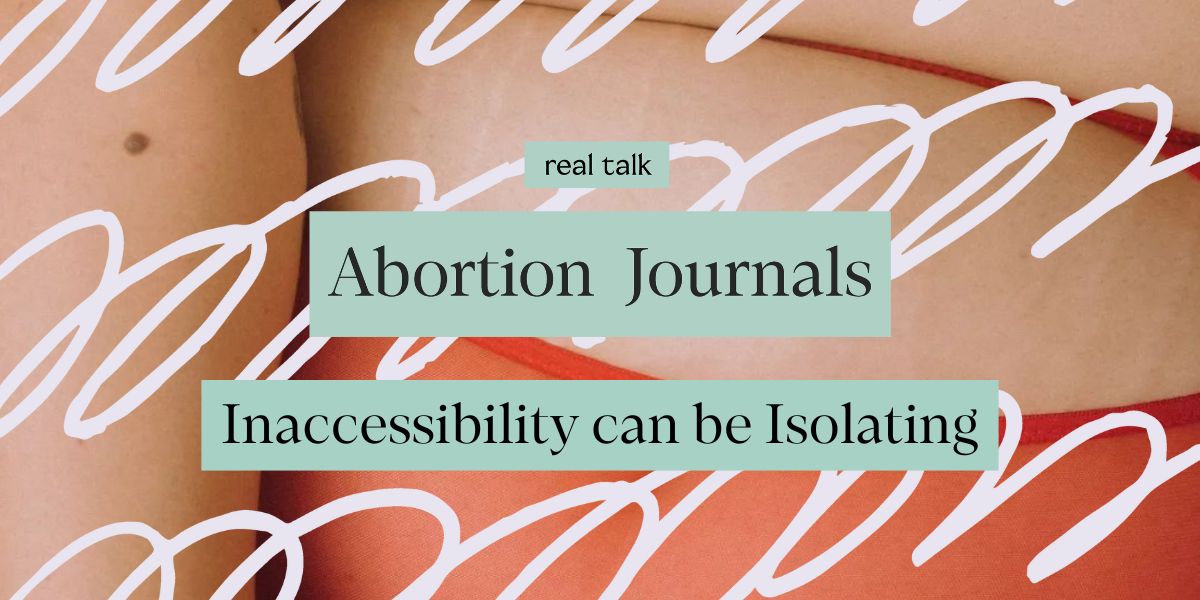The difference between the morning-after pill and the abortion pill

What to know about the morning-after pill
Different types of morning-after pills
There are two types of emergency contraceptive pills, known as the morning-after pill. Pills that contain levonorgestrel like Restart™, Plan B One-Step, My Way, and AfterPill, are available without a prescription online or over-the-counter at a drug store or pharmacy. Ulipristal acetate, the main ingredient in ella, is the other type of emergency contraceptive pill. This pill is only available with a prescription. There are non-pill emergency contraception forms available, which include the copper IUD.
How does the morning-after pill work?
Emergency contraception, including the morning-after pill, works to delay ovulation so that there is no egg to fertilize after unprotected sex and can prevent fertilization. This reduces the likelihood of getting pregnant if you are at a place in your cycle where you have not yet ovulated, or an egg has not been released from your ovary.
How is “pregnancy” defined?
Some of the confusion about whether using emergency contraception can cause abortion is due to misunderstanding the medical definition of what counts as pregnancy. For someone to be pregnant, a pre-embryo must complete implantation into the lining of the uterus. When ovulation and fertilization are prevented, possibly because of some form of contraception (emergency or otherwise), an embryo does not form, and therefore cannot implant into the lining of the uterus — meaning that you will not be pregnant.
Can the morning-after pill cause a miscarriage or an abortion?
The morning-after pill does not cause abortion and cannot terminate an existing pregnancy. It is not recommended that you take emergency contraception if you know you’re pregnant. Emergency contraception won’t abort an existing pregnancy (miscarriage is a termination of pregnancy), nor will it affect an embryo that is already developing. The morning-after pill works to prevent pregnancy before it can even start.
Shop the article
How effective is the morning-after pill?
Emergency contraceptive pills prevent pregnancy between 75-89% of the time depending on the type of contraception used. EC pills that contain levonorgestrel are most effective within the first 24 hours after unprotected sex and can be 75-89% effective. EC pills made with ulipristal acetate, like ella, are 85% effective and the efficacy of this type of pill is the same whether you take it on day 1 after unprotected sex or on day 5.
When should you take the morning-after pill?
Emergency contraceptive pills are most effective between 3 to 5 days after unprotected sex depending on the pill type. Reasons to take the emergency contraceptive pill include having unprotected sex, the condom breaking, a diaphragm moving out of place, forgetting to take your birth control pills on schedule, being forced to have unprotected sex, and more.
What are the side effects of the morning-after pill?
Most side effects are minor. You may experience nausea, dizziness, headache, breast pain, or cramps for a few days depending on the type of emergency contraceptive pill you choose to use. You may have very few effects should you have a copper IUD placed for emergency contraception. Don’t be surprised if your next menstrual period is a couple of days early or late; irregular bleeding is also possible.
How can I get a morning-after pill near me?
Morning-after pills are available over-the-counter in every state. Any person can purchase one — there are no age restrictions and no parental consent needed. Your local pharmacy, drugstore, grocery store, or convenience store may carry morning-after pills. You can also find them online with fast delivery through on-demand services such as GoPuff and Stix.
What to know about abortion pills
What is the abortion pill?
The abortion pill, known as a medical abortion, involves taking mifepristone and misoprostol to end a pregnancy that is still in the first trimester. The abortion pill is only available with a prescription.
How can you terminate an existing pregnancy?
The abortion pill can end a pregnancy early on in the process. If you prefer, you can also terminate a pregnancy surgically. These procedures are more invasive than the pill. Speak with your primary care provider about which option might be best in your situation.
How does the abortion pill work?
The mifepristone stops a developing pregnancy by blocking the hormones necessary to maintain the pregnancy. Misoprostol causes cramps that will carry the terminated pregnancy out of your uterus.
How effective is the abortion pill?
Mifepristone will successfully terminate an early pregnancy between 96% and 97% of the time.
When can you use the abortion pill?
The abortion pill works within the first trimester of pregnancy, up to 11 weeks after your last period. Confirm that you are pregnant before taking the abortion pill. First, you take the mifepristone to stop the pregnancy. Then, you would take the misoprostol which can help with the expulsion of the aborted pregnancy from your body.
What are the side effects of the abortion pill?
The abortion pill has similar side effects to having a miscarriage. You might experience fatigue, dizziness, bleeding, abdominal pain, vaginal bleeding, cramps, and changes to your body temperature. It is important to know that if you start to experience more serious symptoms such as fever, chills, nausea, or vomiting after taking this pill, you should seek medical care right away.
How can I get an abortion pill?
Abortion pills are not over-the-counter and require a prescription from a doctor. You can visit your primary care provider for next steps. If that is not an option for you, you still have options.
Here are some organizations we trust who can help you obtain access to the abortion:
Here's the TL;DR
What’s the main difference between the morning-after pill and the abortion pill?
Emergency contraception prevents pregnancy from developing, preventing the need for an abortion. Without fertilization, there is no pregnancy. You can take emergency contraception within five days of unprotected sex to reduce the chances of pregnancy. If you wish to terminate a confirmed pregnancy, you can take an abortion pill. The abortion pill can be taken up to 11 weeks after your last period, within the first trimester of pregnancy.
When do you use emergency contraception? What about the abortion pill?
Use emergency contraception within five days of unprotected sex. Some forms of emergency contraception become less effective as time passes. You may wish to use emergency contraception if your regular birth control fails or if you had unprotected sex unwillingly. You use the abortion pill after pregnancy is confirmed.
Keep Reading

What is the abortion pill? How does it work?
Apr 15

How effective is the morning-after pill?
Apr 26

How to prevent pregnancy after unprotected sex or birth control failure
Apr 27













